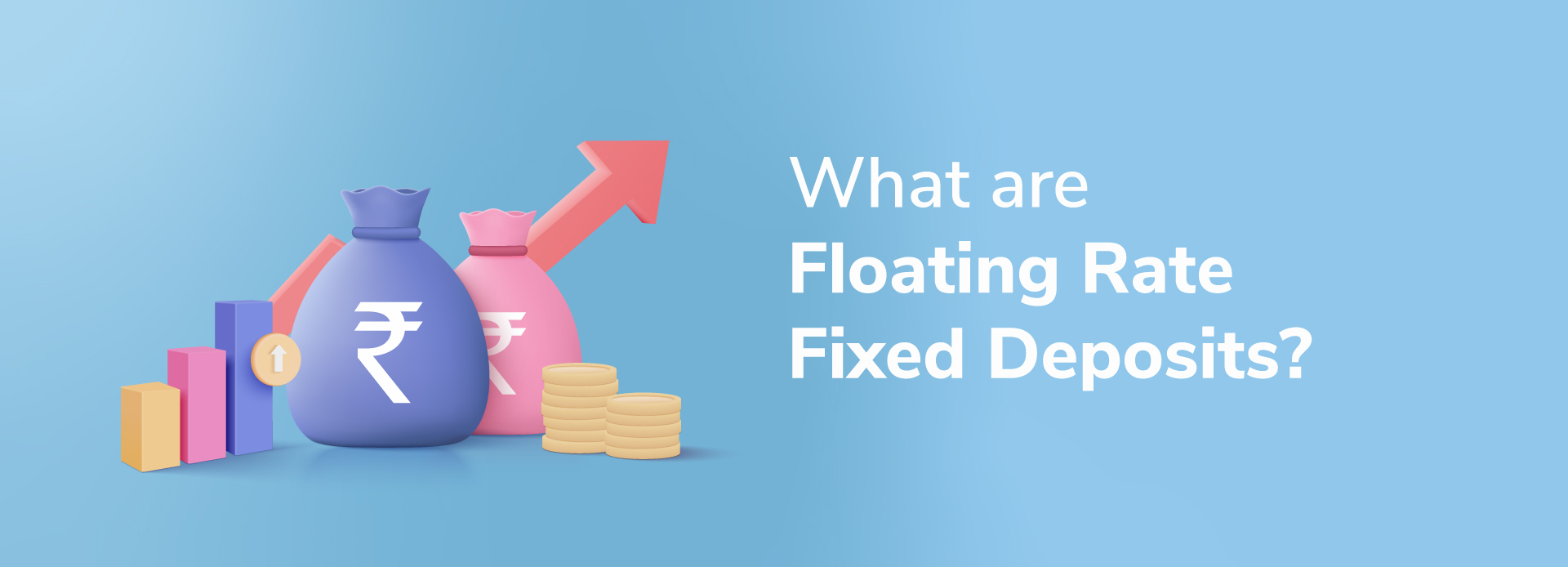
What are floating-rate Fixed Deposits?
18 January 2024 | By INDIE
Floating-rate fixed deposits act as an appealing investment alternative, particularly for investors seeking to profit from changing interest rates. Unlike traditional fixed deposits (FDs), which have a set interest rate throughout the deposit period, floating-rate FDs have a variable interest rate. The floating fixed deposit's interest rates are tied to a reference rate, such as the Reserve Bank of India's (RBI) repo rate. This characteristic ensures that the returns on a floating rate FD adjust in alignment with the prevailing economic conditions, particularly the repo rate.
Top reasons to opt for floating rate fixed deposits
Hedging against inflation
A notable advantage of floating-rate fixed deposits is their capacity to modify interest rates in reaction to inflation. As inflation changes, the interest rates on these deposits adjust, safeguarding the real value of your investment. Owing to this dynamic adjustment, your returns from a floating FD may surpass inflation in a high-inflation environment, ensuring that your savings do not lose buying power over time.
Suitability for long-term objectives
Floating fixed deposit interest rates that fluctuate are especially advantageous for long-term financial planning. Their potential to respond to changing interest rates makes them an attractive long-term investment option. Where the investment horizon is extended, such as for retirement planning or investing in a child's education, these FDs provide flexibility and the potential for higher returns, making them an excellent alternative for long-term investors.
Alignment with market dynamics
Floating fixed deposit rates as follow market movements, provide a proactive investing approach. These floating FD rates are linked not just to indices like the RBI repo rate, but also to the broader economic condition, allowing astute investors to profit from rising interest rates. This feature is especially advantageous in a growing economy with rising interest rates, as it may provide more profitable returns than traditional fixed deposits.
Adaptability and flexibility
During unpredictable economic times, the flexibility of such floating rate deposits acts as a boon. Such deposits endow the assurance of knowing that your parking will not be locked in at a poor interest rate. This flexibility is particularly appealing to investors who are not looking to commit to long-term rates that might become uncompetitive in the future. So, floating rate FDs serve as a safe haven against unanticipated economic developments.
Investment portfolio diversification
Diversification of your financial portfolio is essential, and floating deposits contribute considerably to this. You reduce the interest rate fluctuation and market volatility risk by adding them to your investment portfolio. They offer a counterweight to other fixed-income products, leading to a well-rounded investing approach.
Ideal candidates for floating rate FDs
Floating rate FDs are especially advantageous for those who:
- Want to protect their investments from inflation and keep the true worth of their money.
- Have a long-term investing perspective and can deal with interest rate volatility.
- Look for opportunities to profit from possible increases in fixed deposit interest rates.
- Want to broaden their investing portfolio beyond regular fixed-income assets.
Ending note
Both floating-rate fixed deposits and regular fixed deposits have distinct benefits in the context of savings. While floating FDs benefit from market dynamics, potentially offering higher returns during rate hikes, traditional fixed deposits provide the stability and predictability of a fixed return. Individual financial objectives, risk tolerance level, and investment horizon should all be considered when deciding between the two. You can now easily build your fixed deposit portfolio online through the cutting-edge mobile banking app - INDIE by IndusInd Bank. It makes investing in FDs and managing your finances quick, easy, and seamless. Download the app today!





